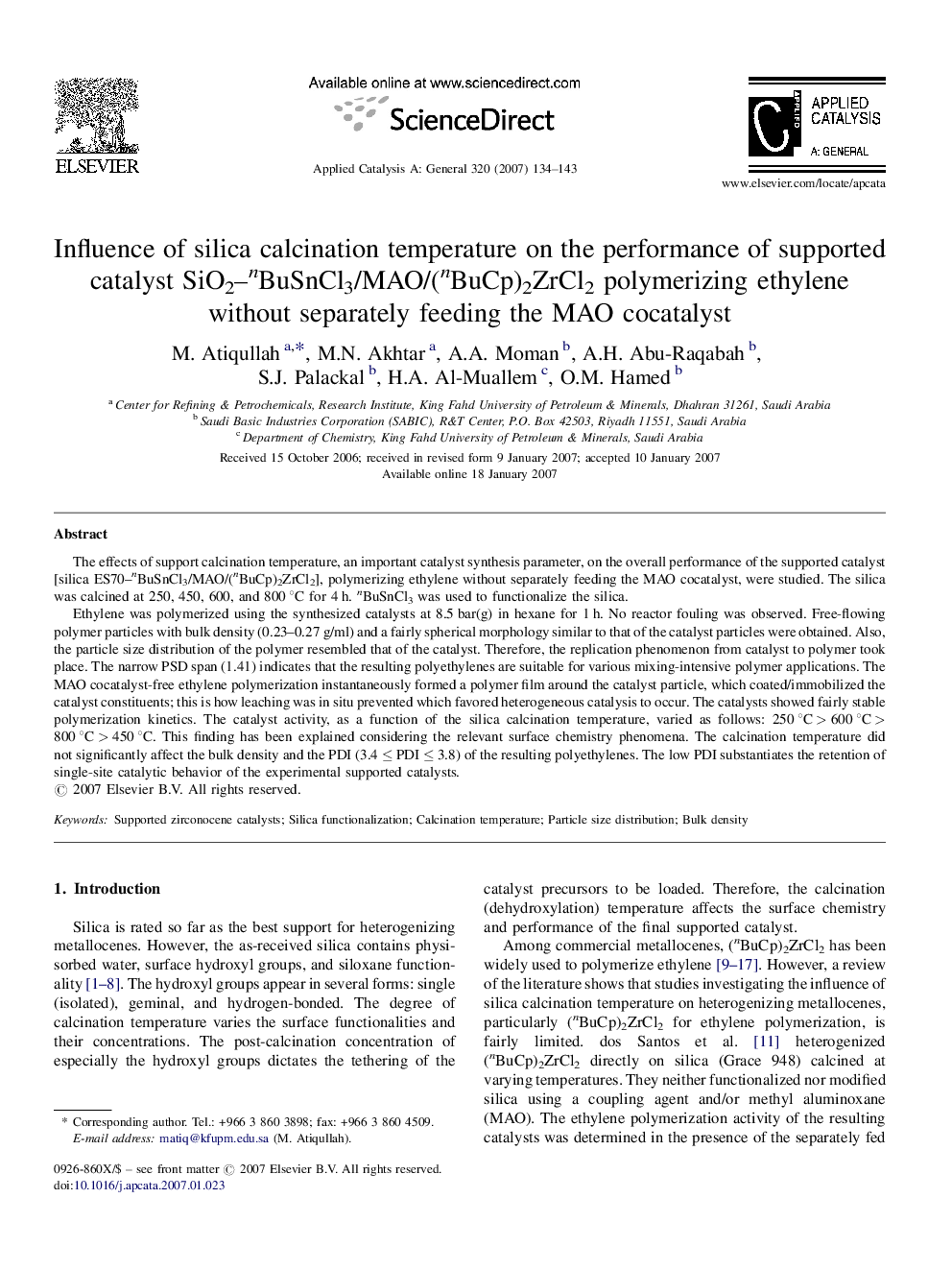| Article ID | Journal | Published Year | Pages | File Type |
|---|---|---|---|---|
| 44427 | Applied Catalysis A: General | 2007 | 10 Pages |
The effects of support calcination temperature, an important catalyst synthesis parameter, on the overall performance of the supported catalyst [silica ES70–nBuSnCl3/MAO/(nBuCp)2ZrCl2], polymerizing ethylene without separately feeding the MAO cocatalyst, were studied. The silica was calcined at 250, 450, 600, and 800 °C for 4 h. nBuSnCl3 was used to functionalize the silica.Ethylene was polymerized using the synthesized catalysts at 8.5 bar(g) in hexane for 1 h. No reactor fouling was observed. Free-flowing polymer particles with bulk density (0.23–0.27 g/ml) and a fairly spherical morphology similar to that of the catalyst particles were obtained. Also, the particle size distribution of the polymer resembled that of the catalyst. Therefore, the replication phenomenon from catalyst to polymer took place. The narrow PSD span (1.41) indicates that the resulting polyethylenes are suitable for various mixing-intensive polymer applications. The MAO cocatalyst-free ethylene polymerization instantaneously formed a polymer film around the catalyst particle, which coated/immobilized the catalyst constituents; this is how leaching was in situ prevented which favored heterogeneous catalysis to occur. The catalysts showed fairly stable polymerization kinetics. The catalyst activity, as a function of the silica calcination temperature, varied as follows: 250 °C > 600 °C > 800 °C > 450 °C. This finding has been explained considering the relevant surface chemistry phenomena. The calcination temperature did not significantly affect the bulk density and the PDI (3.4 ≤ PDI ≤ 3.8) of the resulting polyethylenes. The low PDI substantiates the retention of single-site catalytic behavior of the experimental supported catalysts.
Graphical abstractThe effects of silica calcination temperature on the performance of the supported catalyst [silica ES70–nBuSnCl3/MAO/(nBuCp)2ZrCl2] were studied by polymerizing ethylene without separately feeding the MAO cocatalyst. The catalyst activity, as a function of the calcination temperature, varied as follows: 250 °C > 600 °C > 800 °C > 450 °C. Figure optionsDownload full-size imageDownload as PowerPoint slide
